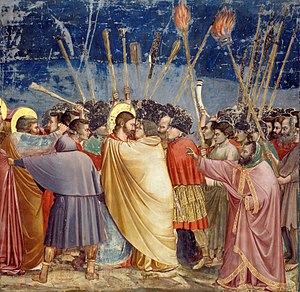It is interesting that throughout the human
civilizations, the history always repeats itself. Many similarities can be
found between the two most powerful civilizations in human history—the ancient
Roman Empire and the present day United States. They have both once experienced
the great expansion in economy and military, and established a strong
government and expanded their influence all over the world. The Roman Empire,
once the super power in ancient times, finally failed in 476 AD due to the
Germanic invasion. The United State began to show signs of decline from the
last decades. It is possible that the US may repeat the decline and fall of the
Roman empire, since several major reasons that led to the fall of the Roman
Empire has been found in the present day US.
Nature and Humanity Blog
Thoughts of Nature, History, and Humanity
Wednesday, May 23, 2012
Friday, April 27, 2012
The Mythology inside The Wizard of Oz
It is a story about a hero who left the homeland, and
encounters three companions, takes a long trek, and defeats an evil being. It
is also a story about mortals and goddesses, the real world and a wonderland.
You may think that I am talking about an ancient myth, but
in fact this is a famous 1930’s film, The Wizard of Oz. It is based on the well-known novel, The
Wonderful Wizard of Oz. The story is about a girl called Dorothy leaves her
home in Kansas and somehow goes to the land of Oz. She comes across Scarecrow,
Tin Man and the Cowardly Lion, finds the Wizard of Oz, defeats the Wicked Witch
and comes back home. This classic film is often seen as a fairy tale. But if we
look into the film more deeply, we will find its mythological core. By
combining ancient western mythological elements, The Wizard of Oz creates a new
age mythology belonging to American culture.
Thursday, April 26, 2012
Cormac McCarthy’s Apocalypse—The Loneliness after the Doom
What will a post- apocalypse world feel like, after the doom
of human civilization? Cormac McCarthy answered this question in his Pulitzer
Prize-Winning novel The Road.
McCarthy’s language is simple, calm but serious, like an old
man telling a story that is full of vicissitudes and desolation. The novel has
two parallel but complementary lines. One is a moving family story about a long
journey of a father and his son, and the other is a stock-still epic of the
world after apocalypse. McCarthy’s apocalypse is a feeling of loneliness which
emerged from the doom of civilization, society, and humanity.
Monday, April 16, 2012
Disease and the Other
Epidemic diseases have been existing in
human civilizations for thousands years. They raged through human society,
spread among different communities, and had a great impact on humankind.
Because of these social attributes of epidemics, people often thought diseases
come from human themselves. People blamed diseases on “others” who come from different
classes, religions, races, ethnicities or nations. As if they can avoid those
horrible and sometimes disgraceful diseases by doing that.
Sunday, April 15, 2012
Epidemics
Epidemics have always played an important role in our
history. They are disasters, but they are also part of human civilizations.
Every epidemic told a story, which was full of sorrow, evil, horror, but also
humanity. Through the comparison of the descriptions of epidemics, we can see
how the epidemics raged through the human civilization.
Saturday, April 14, 2012
Kiss of Judas
The fresco cycle in the Arena Chapel painted by Renaissance
artist Giotto is world famous. Enrico Scrovengi was the patron of the Arena
Chapel. Because his father was a banker who made a lot of money and “he took
over his father's lucrative business and had amassed a fortune by lending money
at high rates, a practice that the church and fellow citizens saw as sinful”,
“Enrico had built the chapel thinking it would guarantee him a place in heaven”
and wash away his sins,. Since “Enrico Scrovengi was one of Padua's best known
and wealthiest citizens” , it is likely that he also wanted to build the chapel
to show his wealthiness to public. Another possible reason he built the chapel
may have been for convenience.
Friday, April 13, 2012
Pragmatic Approach to Laws
In her essay “Pragmatic Laws”, Mitchell rejects the
normative and paradigmatic approach to laws. As she said, she is not going to
define what law is, but to discuss the “understanding” of the usage of
generalization in science. Firstly, Mitchell discusses about the traditional
view of laws, the normative approach. In normative approach, scientists need to
find or create strict laws that can be applied generally. By inputting
different initial conditions, these laws will generate specific outcomes that
meet the phenomena of natural world. If people cannot find such laws in
biology, then it means there are no laws in biology. The normative approach
ignores the degree of contingency. Mitchell argues that many laws, especially
biology laws, do not have clear distinction between university and contingency.
Next, Mitchell discusses the paradigmatic approach. In this approach, scientist
will compare the generalization in biology with the laws in physic or other
science to see if there is a match. If the generalizations in biology are like
the law in other science, then there are laws in biology. The paradigmatic
approach fail to define laws in some “unsystematize space” where no physical
laws can be referred.
Subscribe to:
Posts (Atom)


